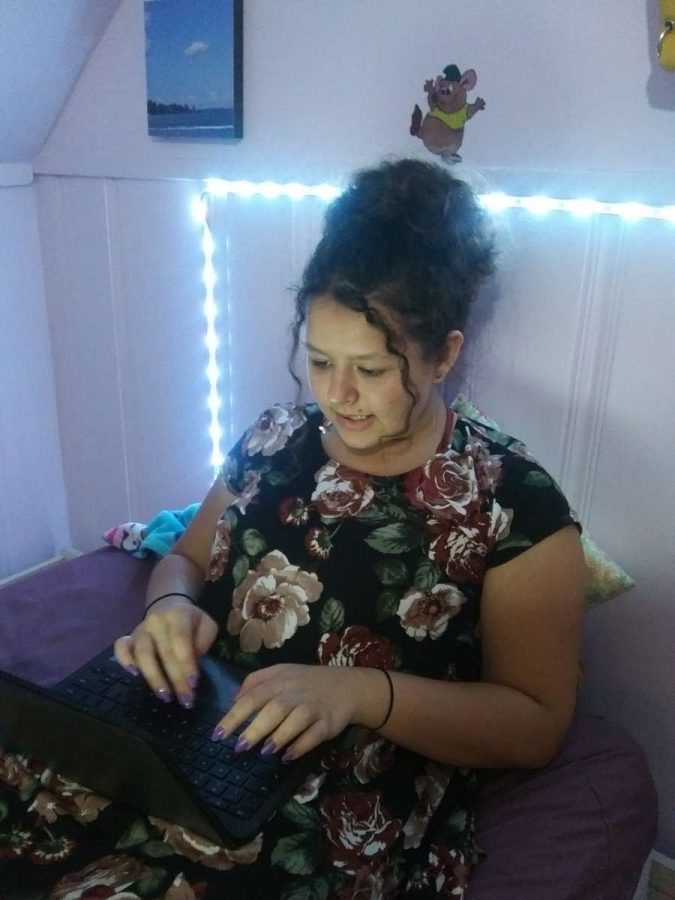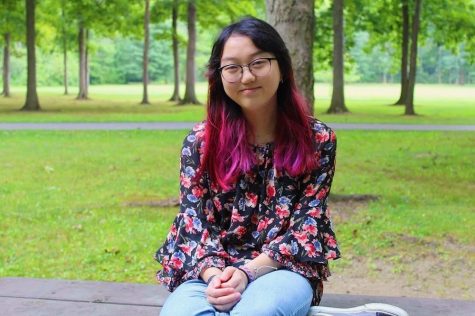Teachers assist students with college essays
Senior Olga Murdakhaev works on her college essay after school.
October 8, 2021
This year’s seniors began writing their college essays in August with help from their teachers.
Amy Meade teaches AP Literature and believes the first step of writing a college essay is separating it from the application itself. She said, “I really emphasized that colleges want to know you as a person, and they don’t want information repeated from the application.”
After that, her class began brainstorming different events to write about, such as important moments, accomplishments, and challenges. They narrowed down one or two events to write about and started their rough draft.
Because the students writing these essays are seniors, they’re familiar with more formal writing which is a benefit when it comes to college essays. Meade thinks that writing this essay sort of as an argumentative essay is a good way to approach it. She said, “In the end, what they’re trying to do is make an argument to pick them… that they’re going to be a student that they want at the university because they have those values and characteristics.”
Kari Beery, the creative writing teacher, is also helping seniors with their senior essays in her class. She said, “In creative writing, we have an essay unit because essays are really important in our literary magazine… If you’re an underclassman and you just want to write an essay, that’s where your angle would go, but if you’re in a place where this is due, then you can write the college essay.”
According to Beery, most colleges list a number of prompts and want the writer to reflect on their own life. Prompts can include things like writing about a specific obstacle or why one’s identity is important to them. CommonApp provides more prompts and the different essay requirements (word count, format, due date, etc) for each specific college.
Writing these essays with a more creative mindset is also beneficial in its own ways, according to Beery. She said, “These are personal essays so there’s a lot more informal voice and a lot more connection to yourself and revelations, especially in that reflective portion, that don’t find their way into every scholarly essay that we end up writing.”
Senior Olga Murdakhaev is in Beery’s class and believes that the essay unit is beneficial. She said, “It gave me a big chunk of time during my day to just sit down and write, which normally I wouldn’t have the time to do.”
For any seniors who haven’t started writing their essay or even next year’s seniors, Beery thinks this essay is a really good opportunity to reflect on your school years. She said, “It’s really hard to write about yourself sometimes… [and] it can feel really weird, but it’s such a great time to think about all the things you’ve earned and overcome.”
Meade believes that getting started on your college essay the summer before your senior year can be really helpful. She said, “That would reduce the stress that most seniors are going through as they’re trying to work on their coursework, apply to college, and do this special essay. So getting a head start is definitely worth it if you can make yourself do it.”
When Murdakhaev was writing her essay, she hit a bit of writer’s block, but Beery was there to help her through it. “She sat with me one on one to talk out my topic and my angle,” Murdakhaev said.
Murdakhaev enjoyed writing a more personal essay because there were creative elements that she couldn’t use in more formal writing. She said, “I could use a lot more of my own voice instead of having to stay in a neutral zone, and I made jokes in my essay, which I would never do in formal writing.”
Overall, Meade has enjoyed reading and helping students with their writing. “I think it’s an important part of this process for students, and I wish everybody luck on their college essay work,” she said.























































